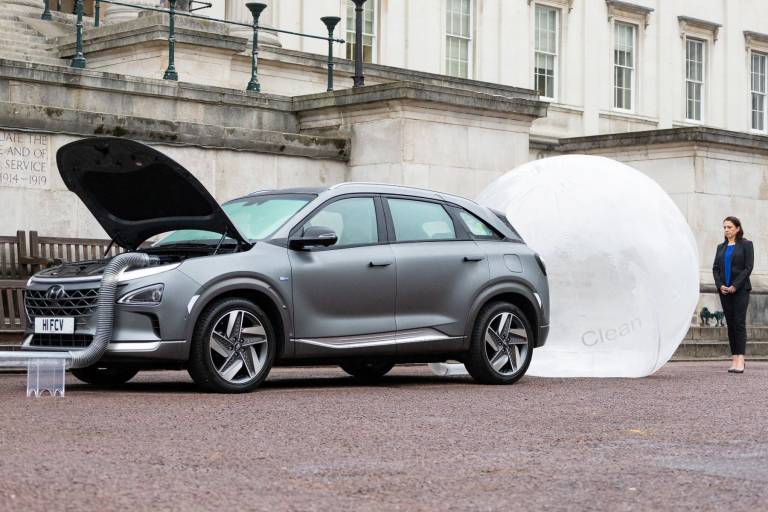Hyundai Hydrogen Fuel Cell Engine, and the Advanced Propulsion Laboratory
UCL Advanced Propulsion Lab identify most polluted London streets to map route for Hyundai Motors.

2 August 2019
Led by Dr Michael Whiteley, researchers used open source data from King’s College London pollution study. The team undertook analysis of heat maps, which demonstrated the mean NO2 and PM levels. The study focussed on the busy areas of central London and out to east London, including areas with large amounts of development work. The research found the most congested and polluted streets to exceed EU limits.
Using the route identified by the UCL scientists, the Hyundai NEXO started making tracks. The journey included travelling via the roads with highest levels of pollution in London, though with zero emissions leaving the tailpipe.
Dr Andy Duncan, Senior Consultancy Manager at UCL Consultants said: ‘Supporting Hyundai and Mike on this project has been a pleasure. Congestion and air pollution in the capital have long been a concern, though the work Hyundai are doing in the fuel cell space to reduce emissions will lead to a cleaner and more sustainable future.’
Our research into fuel cell technology has found it to be a promising transport solution to consider as an alternative to fossil fuel dependent cars and battery electric vehicles which have long charging times. Our research stretches from fundamental material science to full automotive fuel cell power systems for automotive applications. Going forward, we’re building an advanced propulsion facility where we will develop and evaluate hybrid, battery and fuel cell powertrains for automotive applications.”
Images
Hyundai
 Close
Close



